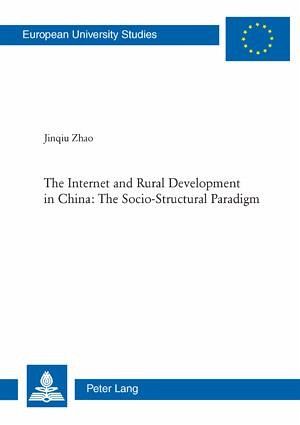
The Internet and Rural Development in China: The Socio-Structural Paradigm
Versandkostenfrei!
Versandfertig in 6-10 Tagen
77,60 €
inkl. MwSt.

PAYBACK Punkte
0 °P sammeln!
Despite its low penetration in China's vast rural areas, the Internet is generally perceived as a new engine for rural empowerment. By examining five Internet application initiatives in rural China, this book offers a unique view of the diffusion and usage of the Internet and its implications on the lives of rural people. Placed in the political, socioeconomic and infrastructure contexts of rural China, the book departs from the classical diffusion of innovations model and extends the existing knowledge on the adoption and usage of the Internet by rural people.In addition to testing the applic...
Despite its low penetration in China's vast rural areas, the Internet is generally perceived as a new engine for rural empowerment. By examining five Internet application initiatives in rural China, this book offers a unique view of the diffusion and usage of the Internet and its implications on the lives of rural people. Placed in the political, socioeconomic and infrastructure contexts of rural China, the book departs from the classical diffusion of innovations model and extends the existing knowledge on the adoption and usage of the Internet by rural people.
In addition to testing the applicability of the diffusion of innovations theory to the diffusion of Information and Communications Technologies in the rural areas today, the study provides rich empirical evidence regarding the actual impact of the Internet on the livelihood of rural people. It also shows some innovative uses of the Internet in rural development.
In addition to testing the applicability of the diffusion of innovations theory to the diffusion of Information and Communications Technologies in the rural areas today, the study provides rich empirical evidence regarding the actual impact of the Internet on the livelihood of rural people. It also shows some innovative uses of the Internet in rural development.














